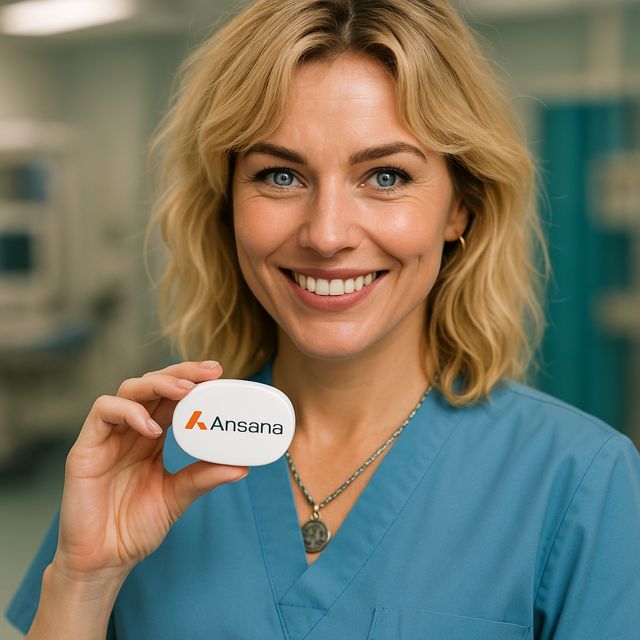Introducing Crainio: Revolutionizing the Measurement of Intracranial Pressure

Press Release
October 5, 2022
Crainio, an NLC venture, sets out to revolutionize the measurement of intracranial pressure (ICP) by developing a non-invasive measuring device.
In situations where our brain experiences a force of impact, for example, falling and hitting your head or being in a car accident, our brain sustains trauma. ICP is the build-up of pressure in the brain due to trauma, and it’s the key physiological indicator of traumatic brain injury (TBI) [1]. TBI can be caused by anything as small as a bump, blow or jolt to the head or a major impact such as an object suddenly and violently hitting or piercing the skull and brain tissue. This disrupts the brain's normal function, which can ultimately be life-threatening. TBI is the number one cause of death and disability in European young adults; a total of 2.5 million people suffer from a TBI in Europe each year, with 75,000 cases resulting in death. In the US, the annual healthcare costs of TBI exceed 70 billion dollars. There is also a growing concern in Europe and the US about the impact of TBI during amateur and professional sports, as well as the chronic effects of TBI, which may result in a predisposition to dementia later in life. Any patient suffering from TBI can experience debilitating symptoms for several months after the incident [2].
Currently, the direct measurement of ICP is not readily available as it is achieved through a highly invasive and expensive procedure involving drilling a hole in the patient’s skull and inserting a pressure sensor onto the patient’s brain. These factors severely hinder the diagnosis of TBI, affecting the quality of treatment clinicians can provide to their patients. It’s imperative for clinicians to know the patient’s correct level of ICP in various situations, as it helps them understand a patient's condition and determine the appropriate treatment. Crainio sets out to revolutionise how we measure ICP by developing a non-invasive, inexpensive measurement instrument that uses a simple probe attached to the patient’s forehead. Since our skull and tissue are translucent to infrared light, it’s possible to use photoplethysmography (PPG) to pick up pulse signals of the brain by shining low-power infrared light on the scalp. Machine learning algorithms process the features of the pulse signals and convert them into ICP estimates continuously, in real-time, and non-invasively. Jeremy Holland, CEO of Cranio, is a trained scientist with a background in technology development, artificial intelligence, software development, and medical devices.
Jeremy Holland, CEO of Crainio:
“TBI is a hidden pandemic because it’s so difficult to diagnose. Nowadays, many households have blood pressure monitors because we use that measurement to assess our health. In reality, we should also assess the pressure in our brain, as it impacts our health just as much. Has your child’s fall in the playground just given them a bump on the head, or is it something more? That’s just one of many questions Crainio will be able to answer.”
The patented technology behind Cranio was developed by a team at City, University of London led by Professor Panicos Kyriacou, Professor of Biomedical Engineering and Director of the City, University of London Biomedical Research Centre. He has over 25 years of experience leading research in optical sensing and leads one of Europe's largest optical sensing in healthcare laboratories. Panicos is the author of the seminal book on PPG: Photoplethysmography: Technology, Signal Analysis and Applications.
Panicos Kyriacou, inventor:
“Our technology is based on decades of experience in non-invasive optical sensors and our in-depth understanding of the interaction between light and tissue. We’ve developed a non-invasive ICP sensor based on a probe that is placed on the forehead, illuminating the underlying brain tissue. The light is reflected back from the brain and is detected by light sensors in the probe, allowing us to pick up the pulsation of the brain’s blood vessels. Changes in the pressure surrounding the arteries affect the shape of the recorded pulse wave, and by analysing the wave shape, we can calculate the pressure within the skull, which is displayed to the clinician in real-time.”
Crainio has developed a measurement probe, collected clinical data, and derived an algorithm. The algorithm can provide real-time ICP measurements similar to the standard of care requirements. The current focus is on improving the predictive pattern of their algorithms, increasing the speed and accuracy of the measurement by the probe.
[1], [2] Center-TBI
For more information:
Crainio: Website
Jeremy Holland | CEO | LinkedIn
jeremy.holland@crainio.com
















%2520980x600.jpeg)


